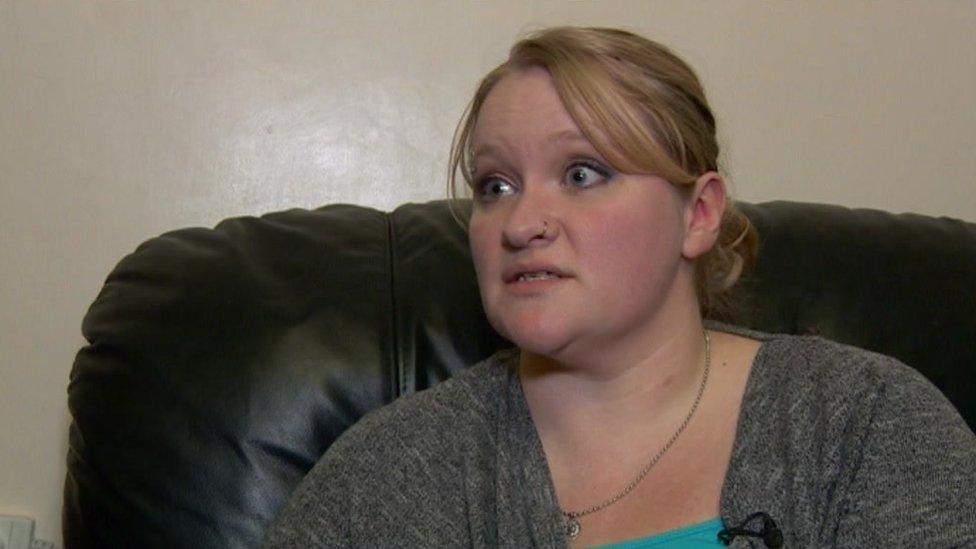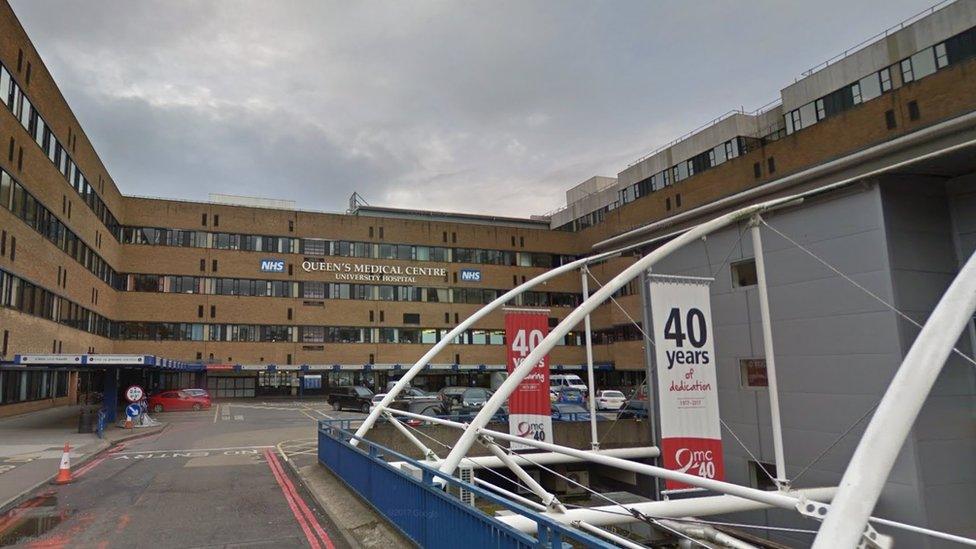Miscarrying Nottingham woman 'took tram to hospital'
- Published

Alice Johnson was in town with her two-year-old daughter when she started bleeding heavily
A woman who was suffering a miscarriage said she took a tram to hospital after being told she faced a five-hour wait for an ambulance.
Alice Johnson said she called 999 after she started bleeding heavily in Nottingham city centre.
She lost nearly five pints of blood before having a miscarriage at Queen's Medical Centre (QMC).
East Midlands Ambulance Service (EMAS) apologised that it could not provide the level of service she had wanted.
Ms Johnson, from Clifton, said she had a small bleed while shopping with her two-year-old daughter, and called 999 when it became heavy.
She said she received a call back from a nurse, who told her to make her own way to hospital and, as she could not move, she was helped by her mother-in-law onto the tram.
She said her boots filled with so much blood it spilled onto the tram.
"It was a horrifying experience that nobody should have to go through," she said.

Alice Johnson said she ambulances were waiting outside Queen's Medical Centre in Nottingham when she arrived via tram
When Ms Johnson arrived at the hospital, on 19 December, she said there were ambulances and paramedics that had not been sent out to any incidents waiting outside.
She said she was worried about having more children in case a similar incident happened again.
"The emergency services do a fantastic job, but if the calls aren't passed to them they can't do anything," she said.
Wendy Hazard, paramedic and ambulance operations manager for EMAS, said the service was helping 71 patients across Nottinghamshire at the time of Ms Johnson's call and had 24 more waiting for an ambulance, meaning they "could not get to Alice as quickly as we wanted to".
She said the call handler "discussed options" with Ms Johnson, and it was "mutually agreed" the best course would be for her to "make her own way" to hospital.
"This must have been a very distressing experience," she said.
"However, there are medical conditions that, despite our skills and expertise, we cannot prevent from happening."